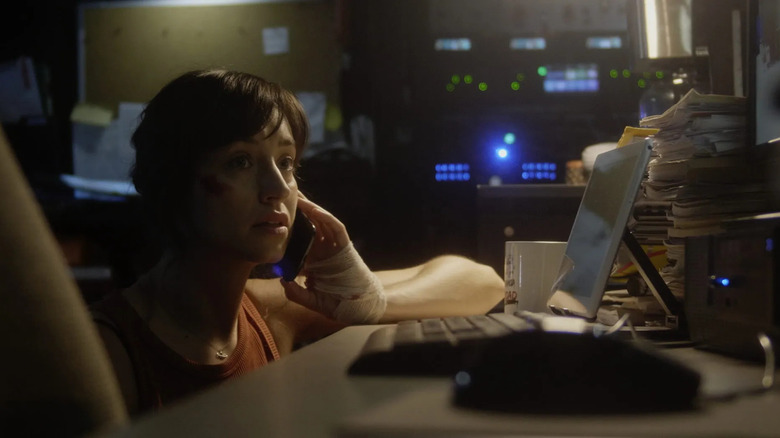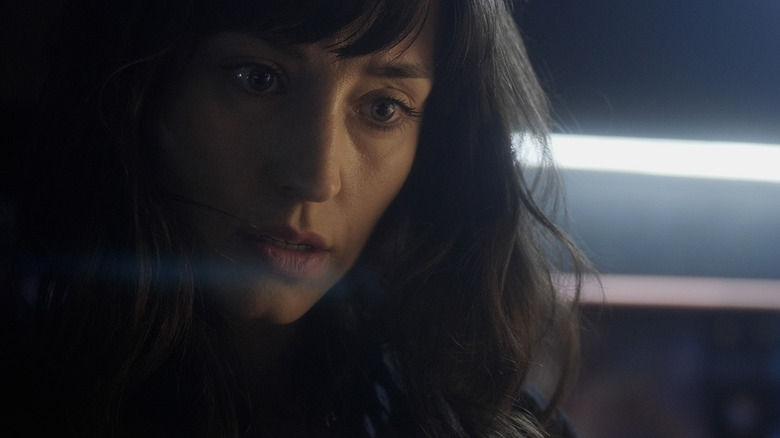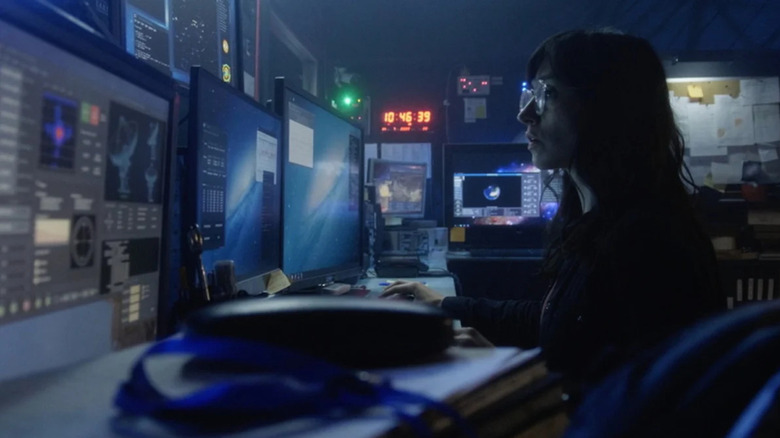The Antares Paradox Review: An Emotional Sci-Fi Drama About The Cost Of Scientific Pursuit [Fantastic Fest]
"The Antares Paradox" is a one-location sci-fi drama that plays as if it takes the best parts of "Contact" and "The Guilty." This is a very emotional, grounded, and thrilling story about finding life in outer space while exploring the ramifications of dedicating your life to a greater goal, and how much of a personal toll it takes on you. Make no mistake, this is not about humans meeting aliens, or being threatened by them. This is a movie about work-life balance in the face of great discovery and great sorrow, a movie that asks how far we're willing to go in order to fulfill our goals and wishes.
We follow Alexandra Baeza (Andrea Trepat), a scientist working in a single room at SETI looking for signals from intelligent life. Her quest for answers to one of life's biggest mysteries caused Alex to be estranged from her family, the rest of the scientific community, and even her co-workers who think of the gig as just a stepping stone to bigger and more lucrative opportunities.
Everything changes when one night, Alexandra gets a signal sent from the Antares star system, one that passes the initial verification tests as being genuine and unique. The problem is that she only has an hour to use the telescope to conduct the verification protocol before she is locked out of the system and the telescope is used by a different team. Making matters worse is the raging storm that threatens to cut off power and destroy the work, all while Alexandra's father is at death's door and expecting her to drop by to say her goodbyes.
Are we alone in the universe?
Luis Tinoco makes his feature directorial debut with "The Antares Paradox," and he makes great use of the single location. Alexandra never leaves her office but is constantly going from one set of monitors to another, checking the strength of the signal, the progress of the verification, and video calling colleagues to ask for help. Tinoco keeps introducing complications in order to both build tension and breaks the monotony of the self-contained set. Every five minutes, something breaks that forces Alexandra to troubleshoot, or she gets a breakthrough that helps motivate her efforts and justifies her devotion to her work.
The whole movie rests on the shoulders of Andrea Trepat, who plays Alexandra. She infuses the character with an inner struggle, her resolve in her work being the biggest driving force in her life, while the personal price she's paid for dedicating her life to science weighs heavily on her shoulders. The more we learn about her, the more tragic her choices become, the harder it is to justify her decisions. The film captures the challenges and the sacrifices this kind of job requires, and the kind of mindset one must have in order to make it in this line of work.
"The Antares Paradox" has a few framing devices it cuts away to often, which help contextualize Alexandra's choices and motivation. From messages her father recorded from the hospital that show how far back her passion for her work goes, to a podcast she recorded where she posed some polemic questions about the value of her work, these framing devices help us understand the character, as well as the film's central paradox about how the pursuit of something big that can impact everyone can often leave you completely alone.
A thrilling, emotional ride
If there is one problem with "The Antares Paradox" is how it answers its central question of dedication to larger ideas versus focusing on the here and now. Though it aspires to the same thematic grandeur and emotional payoff as Robert Zemeckis' adaptation of "Contact," the film's climax ends up feeling rushed and easy, a convenient cop-out that is sure to be a conversation starter. Still, everything before it is done tactfully and with verisimilitude.
Like "Primer," this is a sci-fi movie that pays close attention to details to make sure the technology and science are sound. "The Antares Paradox" relishes on following the scientific method and showing the process of verifying data and making sure it is legitimate, and it is a true joy to see it all come together through math, collaboration, and persistence.
If you're looking for a sci-fi film that's about humans communicating with aliens and our reaction to extraterrestrial life, better go see "Arrival." But if you want a film that's about our perseverance in finding the larger truths in life and the universe, about science allowing us to accomplish the impossible and a very emotional story about the personal cost of the pursuit of science, then "The Antares Paradox" is for you.
/Film rating: 8 out of 10


